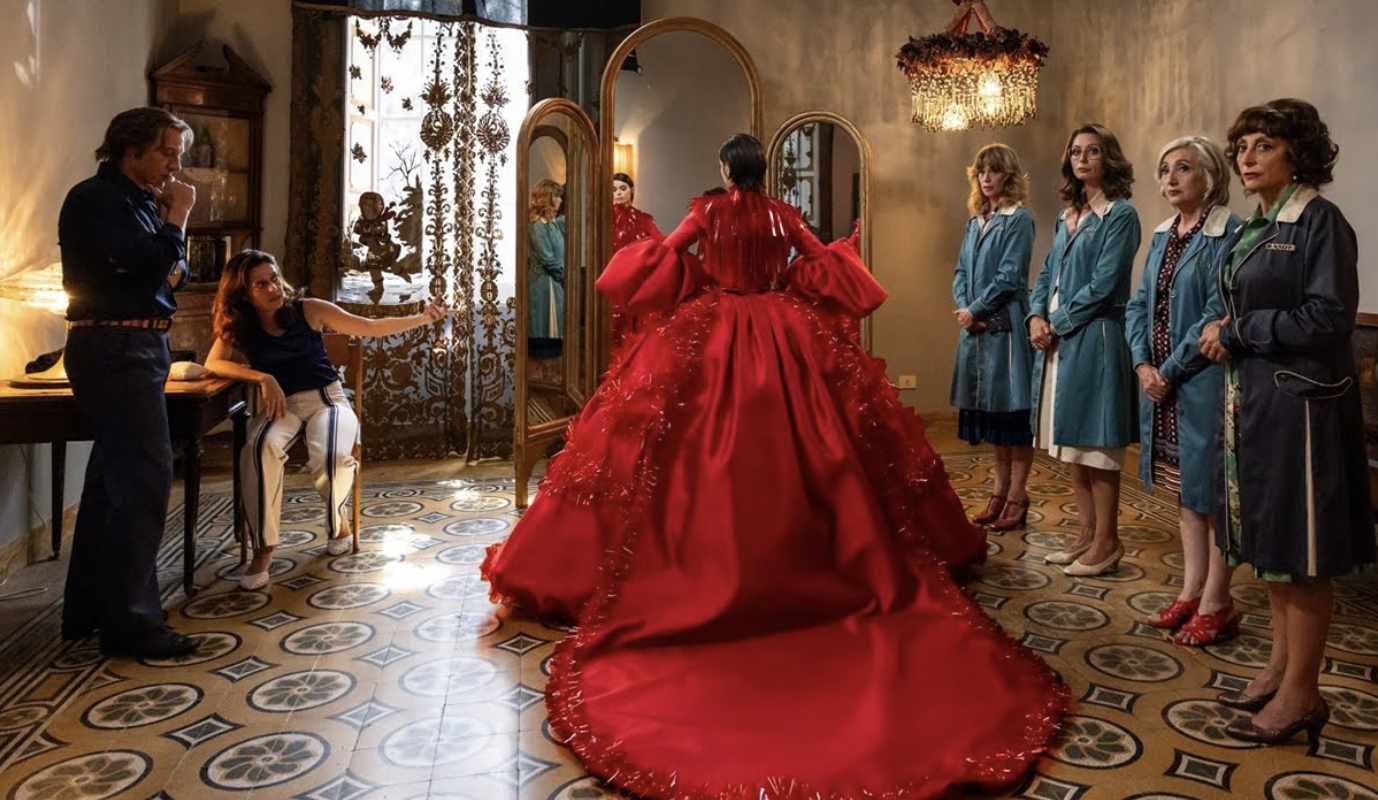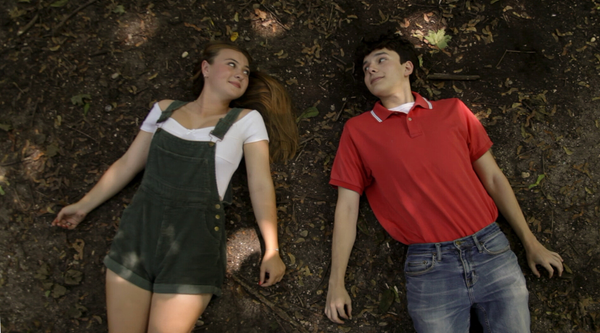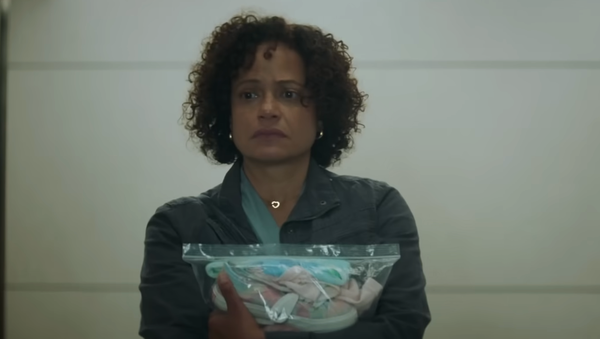Sarah Shojaei fails to find the sparkle in Ferzan Özpetek's Diamanti.
It is no secret that artists pour a little of themselves into most of their creations, sometimes unconsciously, other times to exorcise a demon or two, or to simply imbue their stories with sincerity and much-touted realism. Following in these footsteps, Ferzan Özpetek, the director of Diamanti (Diamonds) fashions the setting of his film from scraps of memories of days spent as an assistant director in a film costume atelier. The picture's intended protagonists are made up of the very same crowd that surrounded him back then: the women that run it.
Yet, the very first scene, characterised by a fourth wall break, is promptly commandeered by him. Özpetek is hosting a lunch for every Italian actress still alive, or, as he himself calls them, ‘his actresses’, to offer them a part in his next project, Diamanti. It is a bold move, one that, aided by some wishful thinking and naivety, could have been seen as interesting within its context. Unfortunately, the framing device follows us, or more aptly haunts us, throughout the film, constantly bringing us back to the creator.
As Theodore Woodward said, ‘When you hear hoofbeats, think horses, not zebras.’
Set in 1970s Rome, Diamanti documents the struggles of Alberta (Luisa Ranieri) and Gabriella (Jasmine Trinca), owners of the atelier, and of their seamstresses, Fausta (Geppi Cucciari), Nicoletta (Milena Mancini), Nina (Paola Minaccioni), Eleonora (Lunetta Savino), Paolina (Anna Ferzetti) and Giuseppina (Sara Bosi). Alberta and Gabriella are opposites. Alberta is the high-strung militant boss, a faint copy of Miranda Priestley, while Gabriella is meek and gentle but comes across as distracted, if not haunted, and unreliable as a business partner.
The seamstresses are assigned what can loosely be considered a storyline: Nina’s son is depressed and will not leave his room; Nicoletta’s husband is physically and emotionally abusive; Giuseppina is the newbie, the cousin of an employee, who got the gig through sheer nepotism; Eleonora is having an affair with the only male employee in the shop while her niece, Beatrice, uses the atelier as a hideout from the police after participating in a feminist protest; and finally, Paolina is a single mother who struggles to make ends meet. Life as a woman, such fun.
Their stories ‘develop’ around the main plotline, which sees Oscar-winning costume designer Bianca Vega (Vanessa Scalera) choosing the atelier for her next film. Bianca is an artist: irrational and demanding, at times even abusive. Whilst it can be appreciated that a female figure in the 1970s industry would have to act the part to exert authority and be respected, the shouting becomes caricaturesque, stressing a point that Luisa’s character Alberta has already hit us over the head with: women in power need to hit 100 decibels every other sentence.
The cast’s performances are strong, as expected, and the ensemble scenes are where the direction stands out. Well-orchestrated, they bring out the chemistry amongst the characters. The sequences are permeated by a sense of sisterhood, reinforced by a crowd-pleasing soundtrack of one Italian classic after another, such as ‘Mi Sei Scoppiato Dentro al Cuore’. Unfortunately, the film struggles to give each of Özpetek’s actresses the right amount of screen time, if any at all, and the more it goes on (and on), the less it feels like that ever mattered in the first place.
The film’s fatal flaw seems to rest, then, in its conception. Özpetek’s desire to voice the seamstresses’ stories is stifled by his own hand, which stops one too many times to showcase his own filmmaking journey, thus silently turning his characters’ journey into an afterthought, a frame of little depth. Each storyline is granted no more than a few scenes from its beginning until it is swiftly and superficially dealt with.
Oh, to be a fly on the wall when the treatment was written. In the room, a whiteboard featuring a heavy-duty bullet-point list of issues faced by everyday women:
- Domestic violence
- Long-lost love comes back to haunt you when you have finally become successful
- Being a boss and a woman? How ever can this be?
- Depressed son does not want to leave the house
- Struggling single mother
- Untalented intern gets into a throuple
- Teenager who has not found the right path in life yet gets involved with the wrong crowd (entirely too political) to then magically find her way (see Grimm’s The Elves and the Shoemaker for inspiration)
- Mother grieving the loss of her only baby daughter
On top of the stereotypes, the story adopts tired tropes that are nowadays reserved for Hallmark movies. For example, when Alberta’s long-lost love comes back to see her, she rejects him and reminds him of how he left her waiting alone in Paris after promising to leave his then-girlfriend to finally be with her (if the writers of Everybody Comes to Rick’s were alive...). The film later reveals that he could not make their meeting because, on that very day, his girlfriend was in an accident that paralysed her.
This was not, in fact, the worst bit of writing.
It is lunchtime at the atelier. The seamstresses are sitting at the table. Fausta asks Nicoletta about the bruise hauntingly framing her lip, in front of everyone. When Nicoletta blames it on scratching an insect bite while sleeping, Fausta insists, inquiring whether the insect has a moustache. Nicoletta lies: it was a spider, she says. Fausta stares at her disapprovingly. Silence falls across the table as the camera pans over to the other characters in the scene. They all know.
The silence is broken by Nina offering Nicoletta foundation to cover the bruise, when yet another employee claims that ‘they should be killed when they’re young, these spiders with moustaches’. Nicoletta looks away from the table, visibly uncomfortable.
The sheer lack of sensitivity astounds: to treat such a delicate matter as if it were nothing but gossip to be chatted about in the town square, exposed to everyone’s judgement when all it wants to do is retreat into the shadows. Two female writers have been credited as having worked on the screenplay, Elisa Casseri and Carlotta Corradi. One naturally wonders where their voices were when this exchange was written.
However, the multiple scenes that break the fourth wall throughout the movie, bringing us back to Özpetek’s house pre-filming, might help clear it up.
He cannot help but direct the attention to himself, time and again, reminding the audience of the reason why this fictional world exists and why these women, his diamonds, are on our screen. The director. The master puppeteer, who appears for the last time towards the end of the film, on the set, now empty. He looks around and brings it back to life. Voiceovers start, and we can hear lines from the film again. The moment he looks away, they stop, until he looks somewhere else, and they start again. They play the part at his whim, existing only because of him. The sisters’ mother, played by Elena Sofia Ricci, who had allegedly given up the role for personal reasons and had been written out of the script, makes an appearance, sealing the film’s message. She tells the director: ‘You are the one who taught me that what is left within us is the only thing that matters’, followed by reverse shots of the two. Elena looks at him in admiration. We should all be so thankful.
Diamanti is clinging onto the wave of feminism that Italian cinema embraced just two years ago with There’s Still Tomorrow. Unfortunately, it falls short, effectively functioning as an empty vessel, lacking sincerity and depth, and dedicating itself to its creator. It reads as the performative act of a director too concerned with being perceived as a man who wants to celebrate ‘women’s power’ to focus on their stories in order to do so. The characters’ struggles disappear almost overnight. Healing abounds. The liberals are satisfied with the Feminism 101 class, but how can one blame them when multiple women are on screen, most even middle-aged? Dreams do come true.
Diamanti is available to stream online now.







